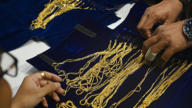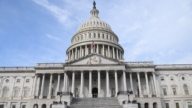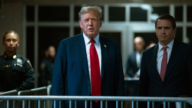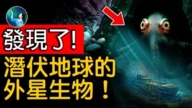【新唐人2011年8月2日讯】继加拿大遣返赖昌星之后,目前正在中国访问的美国商务部法律总顾问卡梅隆•克里(Cameron Kerry)28号表示,美国将与中共合作,以遣返潜逃在美国境内的中共贪官。美中这一技术层面上的“反腐合作”,能否达到吓阻中共贪官外逃,并为遣返潜逃贪官铺平道路呢?请看报导:
中国最大通缉犯赖昌星被遣送回中国,结束了他12年的潜逃。赖昌星的回国,除了引起外界对中共高层权斗的关注,也让中共的潜逃贪官问题再次曝光在人们面前。上个世纪80年代末,开始有中共官员因经济犯罪外逃。30多年来,外逃的腐败中共官员的人数,和他们卷走的资金究竟有多少,至今没有一个公认的数字。
据《人民日报》海外版的报导,按照中国社科院的一项估计,中国目前有4000多名官员境外在逃。而据中国央行6月中旬公布的一项完成于2008年的报告,从90年代中期以来,外逃、失踪的中国党政干部、公安、司法干部和国家企事业单位高级管理人员,总数达到1万6千到1万8千人。《人民日报》海外版报导说,中纪委声称,外逃贪官携走资金达500多亿美元,央行报告则说,以上外逃人员携走款项达8000亿元人民币。
不过,民间对这个数字表示怀疑。2010年,北京大学廉政建设研究中心的一项统计报告显示,过去10年逃往北美和欧洲等地的中国腐败官员达1万多人,携带出逃款项达6500亿元人民币以上。
时事评论家伍凡:“贪官太多了。它这个数字是经过缩水再缩水。共产党讲的话、数字啊,没有一个是真的。所以我不相信它,这么多年了才4000个人,一个省都不止,不要说全国。”
而近年来,中国不仅贪官潜逃成风,目前已经到了无官不贪的地步。“中国人民大学”国际关系学院政治学教授张鸣向《德国之声》表示,现在每一层政府都参加经济发展,经济运作,也就是“政府公司化”,因此,把资金转移出去不是什么难事,而“反腐败”现在基本就是“政治斗争的工具”。
评论员章天亮也表示,中共体制使得贪官无法遏止。
章天亮::“很多贪官他们之所以贪污而没有被追查,是因为他们受到了当权者的保护。当权者以利用这种腐败的方法允许,或者甚至是说鼓励他们贪污,以此换取这些贪官对这个制度的维护,对这个制度的忠心。因为是这个制度鼓励了腐败,那么腐败分子的话呢,反过来他们也愿意维护这个制度。”
美国商务部法律总顾问卡梅隆•克里(Cameron Kerry)这次访中关注的焦点,就是反腐败以及商业法规的执行。他说,美国与中国之间目前没有遣返条约,但仍有追踪在逃人员的其他机制。
对于美中这种反腐合作会有多大的效力?张鸣教授表示质疑,他表示,现在是反腐机构本身,如纪委,反贪局,都开始搞这种事儿,反腐怎么还能搞下去呢。
而章天亮表示,中共对某一个贪官追查到什么程度,也是权力斗争的需要。
章天亮:“在十几年以来,甚至是改革开放以来的话,贪污越演越烈,因为中国不能够实行这种西方的独立的司法,开放的媒体。因为这个还没有威胁到贪官的利益,首先就把中共的政权威胁的很厉害。这种独立的司法,这种独立的监督机制,其实对中共的政权威胁更大。所以说中共宁可放纵官员贪污,它也要维护自己的权力。”
“不反腐败亡国,反腐败亡党”这句话近年来作为反腐“名言”,在大陆社会广为流传,同时也折射出中共当局在这一问题上处境的尴尬和危险。
新唐人记者常春、尚燕、柏妮采访报导。
US-Chinese Cooperation Deters Corrupt Officials?
After Lai Changxing’s repatriation back to China by Canada,
Cameron Kerry, General Counsel of
U.S. Department of Commerce, said on July 28,
while on a visit to China, that the U.S. would cooperate with
China to repatriate corrupt Chinese officials living in the U.S.
Will this “anti-corruption cooperation" deter corrupt Chinese
officials from fleeing China and pave the way for
the repatriation of corrupt officials hiding in the U.S.?
On July 23, China’s most wanted man, Lai Changxing, was
deported back to China, after hiding in Canada for 12 years.
Lai’s return has drawn people’s attention to the high-level
internal power struggles in Chinese Communist Party (CCP).
It also exposes the issue of absconded corrupt CCP officials.
Since the late 1980s, CCP officials have begun to flee
due to their economic crimes.
After three decades, the number of fugitive CCP officials and
the sum of the money they stole remain unknown to the public.
As per CCP’s mouthpiece, People’s Daily’s overseas edition,
the Chinese Academy of Social Sciences estimates that
there are more than 4,000 officials at large overseas.
According to China’s central bank’s report completed in 2008,
from the mid-1990s, between 16,000 and 18,000 CCP cadres
and senior managers of state-owned enterprises
had fled China or disappeared.
People’s Daily reported that the Central Commission for
Discipline Inspection claimed that
these officials took US$50 billion with them.
However, the central bank said the figure to be US$800 billion.
However, people are skeptical of the figures.
In 2010, Peking University Center of Anti-Corruption Studies
statistics showed that in the past 10 years,
10,000 corrupt officials fled to North America and Europe,
taking more than RMB 650 billion (US$101 billion) with them.
Current issues commentator, Wu Fan:
“Too many corrupt officials. The figure has been reduced.
All of the CCP’s claims and figures are false,
so I don’t believe them. Only 4,000 people in these many years?
One province could have more than this figure;
let alone the entire country!"
In recent years, besides rampant flights of corrupt officials,
all CCP officials have become corrupt.
Renmin University’s Institute of International Relations
Political Science professor, Zhang Ming, told Deutsche Welle
that all levels of governments now participate in
economic development and operations,
the so-called “commercialized government."
Thus, the transfer of funds out of China is not difficult, and
“anti-corruption" is basically “a tool used in political struggles."
Current issues commentator Zhang Tianliang said that the
CCP’s corrupt system encourages corruption among officials.
Zhang Tianliang: “Lots of corrupt officials are not investigated,
because they are protected by the authorities.
The people in power allow or even encourage them to embezzle,
in exchange for their support and loyalty.
As this system encourages corruption, in return, the
corrupt officials are willing to maintain this system.”
U.S. Commerce Department General Counsel
Cameron Kerry’s focus on his visit is
anti-corruption and commercial code enforcement.
He said that there is no repatriation treaty
between the U.S. and China.
However, other mechanisms are available to track fugitives.
What effect can a Sino-U.S. anti-corruption cooperation have?
Professor Zhang Ming expressed his doubts.
He said that anti-corruption departments, such as Commission
for Discipline Inspection and Anti-Corruption Bureau,
engage in embezzlement and corruption.
How can they be put in charge of fighting corruption?
Zhang said that the depth of an investigation into a
corrupt official reflects the extent of an existent power struggle.
Zhang: “In the past dozen years, corruption has intensified as
China doesn’t have an independent judiciary system or open media.
To the CCP, judiciary independence
and an independent monitoring mechanism
are a larger threat to the Communist regime
than the corrupt officials.
So the CCP would rather indulge its officials in embezzling,
because it needs to maintain its own power."
“Anti-corruption does not destroy the country;
it destroys the party.”
This saying is widely circulating in China.
It also reflects the CCP’s embarrassment
and dangerous position on this issue.
NTD reporters Chang Chun, Shang Yan and Bo Ni

























